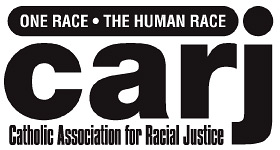
We must devote ourselves to the long term aim of restoring community
After the Referendum – Supporting One Another
It is only days since most of us were shocked by the results of a referendum which put the UK on track to leave the European Union. The months leading up to the referendum saw an increasingly polarised debate in which ‘immigration’ became a focus of disagreement and discord. Many migrants and refugees, even those long settled here, became nervous. Some with anti-migrant sentiments may have felt that the result of the referendum gave them permission to speak and act against their neighbours. Police have acknowledged a 57% rise in reported hate crime since the referendum.
These developments are especially disconcerting, as the UK had long been seen as a very diverse society at ease with itself. In 2009 CARJ acknowledged this:
CARJ wishes to acknowledge and to celebrate all that has changed for the better over the past 25 years and the progress that we have all made toward becoming a truly inclusive Church in a truly inclusive society. Overt discrimination has been made illegal and largely banned from mainstream society. People of diverse backgrounds now live and work in all sectors of society. Educational disadvantage is being steadily overcome. Our churches and schools are now communities of every language, nation, colour and culture. (The Changing Face of Britain, 2009)
This positive achievement was especially evident in London – which may be the most cosmopolitan city in the world. London’s rich diversity, at ease with itself, was evident to the world during the 2012 Olympics
Recent events have seriously disturbed any complacency on our part, and they may have begun to undermine our positive achievements. We come out of the recent referendum more conscious of our divisions and more uncertain about our ‘common values’.
Now, we must devote ourselves to the long term aim of restoring community, taking seriously the concerns of all those who feel they have been left out of the country’s economic progress. We must also address the immediate challenge of an increase in ‘hate crime’.
We welcome the recent statement on ‘hate crime’ by Home Office Minister Karen Bradley, and her announcement that the government will shortly be publishing a Hate Crime Action Plan. We also welcome the unanimously positive response to her statement by Parliamentarians from across the political spectrum
Hate crime has long been recognised as an important challenge. The UK has strong legislation to deal with it, dating back to the Crime and Disorder Act 1998. The Coalition Government 2010–15, developed an action plan to oppose hate crime which was spelled out in Challenge It, Report It, Stop It (March 2012). The plan included a strategy to address three key issues – prevention, reporting and response to hate crime. In May 2014, the Government reported on progress. We await the new Hate Crime Action Plan, hoping that it will build on the past and help us to face our new challenges together.
Undoubtedly, the new Action Plan will acknowledge the importance of local communities, voluntary associations and faith communities in addressing the challenges we face today. This is important. There are churches across the country who can influence their local communities.
We have other assets at hand in this effort. True Vision is a police funded website designed to provide information about hate crime (see more here) and organisations like Hope Not Hate have taken a lead in this area.
Finally, although CARJ is a relatively small organisation, we have extensive networks of people in local areas, working with others to build a more just, more equal, more cooperative society. We concern ourselves with a variety of issues facing marginalised communities – housing, education, poverty, criminal justice, etc. We are also available to support anyone who is trying to prevent hate crime or to re-build an atmosphere of mutual respect in our society. Please don’t hesitate to be in touch.
Mrs Yogi Sutton
Chair of CARJ Trustees
30 June 2016
Catholic Association for Racial Justice (CARJ)
9 Henry Road
London N4 2LH
020 8802 8080
info@carj.org.uk



